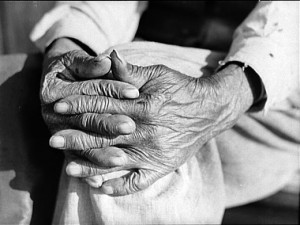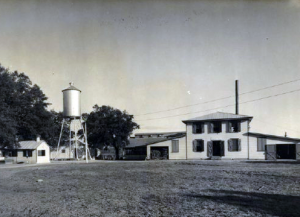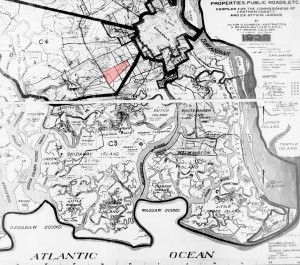Lost on a Back Road! (Nostalgia-part 7)
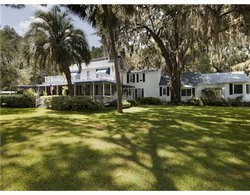 The other day I was out on errands and spied a 'For Sale/Waterfront'sign . In my neck of the woods that usually means river front and/or marsh land. So I turned around and followed the signs. On a private dead-end road I found the beautiful home on some acreage. I always like to look at real estate and I am always curious about what 'water front' costs. Driving slowly onto the property I began to look for a flyer. Failing that I slowly and respectfully rounded their circular driveway heading back out.
The other day I was out on errands and spied a 'For Sale/Waterfront'sign . In my neck of the woods that usually means river front and/or marsh land. So I turned around and followed the signs. On a private dead-end road I found the beautiful home on some acreage. I always like to look at real estate and I am always curious about what 'water front' costs. Driving slowly onto the property I began to look for a flyer. Failing that I slowly and respectfully rounded their circular driveway heading back out.
I paused at the street and a man, riding a John Deere mower chased me down and asked if he could show me the house. What luck! I was going to be able to see the beautifully restored plantation house. I never could have imagined the story that awaited me!
It sits on three acres with a six car garage, a guest house, a barn and a doll house. The lawns spill down to a large deck overlooking a tidal creek which feeds out to the Vernon River. The live oak trees are hundreds of years old, spanish moss dripping from every branch. The deck has been built around an oak even to the point of interrupting the hand railing to accommodate a branch eighteen inches thick. (it's a southern thing; we love our live oaks.)
But it was the owners' story that I wanted to share with you.
Courtesy of sonofthesouth.net
Dick and Sue bought the working farm and farm house in 1975. Back then, common in those days, the kitchen was outside on a porch so that it wouldn't add to the summer heat within the house. The house was approximately 1,000 sq. feet compared to its 5,000 sq. ft. now.
Part of the sale was that the new owners must care for a middle-aged black man; the grandson of slaves, for the remainder of his life. That in itself was remarkable but they agreed.
Parker Bell was illiterate, didn't know how old he was, didn't know his mother or father's name. He was 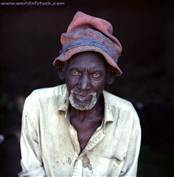 raised on a 'brown farm'. At first I found little history referring to a 'brown farm' but had heard that this is where young children (orphans) were housed after the civil war and into the early 1900's. I wondered if the name was an acronym in reference to John Brown, the abolitionist?
raised on a 'brown farm'. At first I found little history referring to a 'brown farm' but had heard that this is where young children (orphans) were housed after the civil war and into the early 1900's. I wondered if the name was an acronym in reference to John Brown, the abolitionist?
But thanks to a friend, Lori, who loves this kind of research as much as I do....we found the 'Brown Farm' in Savannah, GA., and a census map. 'Young black children who were orphaned in Savannah from the latter part of the 19th century to 1943 had - for a number of reasons - nowhere to live except Savannah's penal farm. There the young children were surrounded by such sights as men in shackles laboring in the fields, windows with bars and chain gangs. The kids were not being punished, but it was common practice for them to be taken there.
Savannah Penal Farm
Because there was no orphanage for black children, Chatham County black youth were often placed at the old "Brown Farm", a 400 acre county penal farm for convicts (located on Montgomery Crossroad near where Lake Meyer is now) where they remained until they reached legal age. The girls were sent to the Chatham County Protective Home, operated by the Savannah Federation of Colored Women's Clubs. This practice went on for years, until Greenbriar Children's Center was established.' (Courtesy Greenbrier Children's Center)
Lori's mother-in-law, Mamie (now 94 years of age) remembers the Brown Farm. She told us, "When I was young, me and a girl was in a fight, and both of us was sent to the Brown Farm. The people in charge there, kept us for thirty days, and we had to wash clothes for the boys that were living there. I believe that old brown farm is where Memorial Hospital is now, just off Waters."
Census map of the Brown Farm and Savannah
Parker Bell lived in the guest house and had the run of the property until his death a few years back. The family treated him like a favorite uncle. He didn't have a social security number and because of his learning disabilities couldn't work an outside job. But he kept busy cleaning up leaves, mowing grass and helping the children with their horses. Dick and Sue kept their promise and supported Parker Bell, financially his entire life.
Dick told me the delightful story of the night they had a dinner party for twelve. In the middle of the meal, Parker walked into the house and into the candle-lit dining room and said, "Mr. Dickie, I caught us a mess of bass outta that creek," proudly holding up a stringer of fish.
My whole adult life I have had my best adventures when I've been lost....and today was no exception. And to other writers out there? Your next story could be around the next bend in the road.
~~~~~~~~~~~~~~~~~~~~~~~~~~~~~~~~~~~~~~~~~~~~~~~~~~~~~~~~~~~~~~~~~~~~~~~~~~~~~~~~~~~~~~~~~~~~~~~~~~~~~~
DON'T MISS UPCOMING BLOGS featuring INTERVIEWS with best-selling AUTHORS!
In addition to my twice weekly blog I also feature an interview with another author once a month. So come along with me; we shall sneak into these writers' special places, be a fly on the wall and watch them create! Dean Koontz just granted me an interview and will be featured here this spring!
To receive my posts sign up for my  On the home page, enter your email address. Thanks!
On the home page, enter your email address. Thanks!

